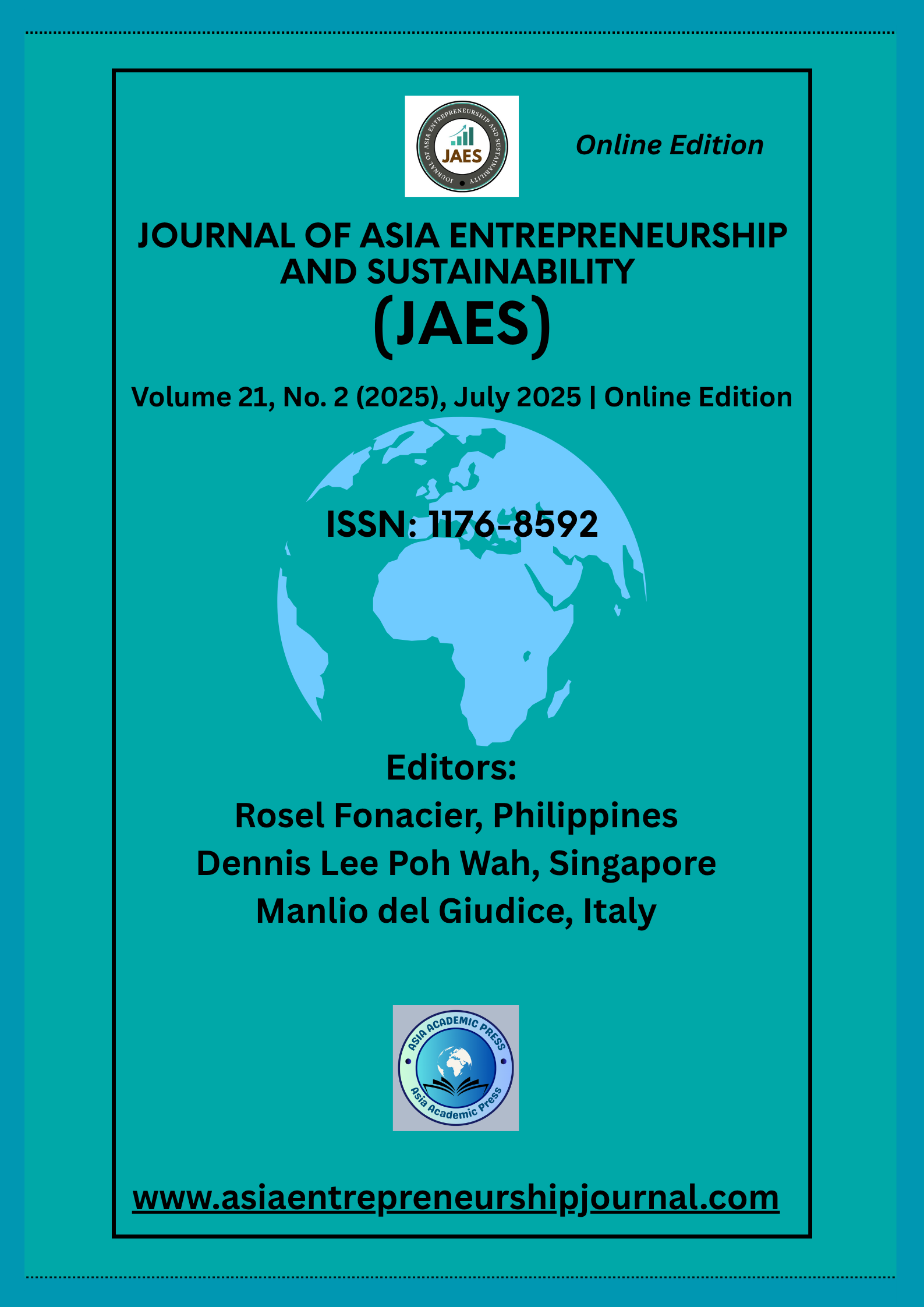The Effectiveness of Sustainable Advertising in Emerging Markets: A Systematic Review
DOI:
https://doi.org/10.53555/jaes.v21i2.30Keywords:
Sustainable Advertising, Advertising Effectiveness, Emerging Markets, Consumer BehaviorAbstract
As sustainability becomes a central concern for consumers, companies in emerging markets are increasingly incorporating sustainability themes into their advertising strategies. This systematic review synthesizes research on sustainable advertising to explore two core questions: (a) What factors contribute to the effectiveness of sustainability advertising? and (b) What motivates consumers in emerging markets to engage in sustainable behaviors in response to such advertising? The review is structured around key dimensions including ad context, message framing, source credibility, along with consumer-related drivers such as environmental concern, values, and trust. By consolidating findings from diverse studies, this review provides a comprehensive framework for understanding how sustainable advertising functions in emerging markets and identifies critical gaps to guide future research in this evolving domain.
References
1. Brechman, J. Marie, and S. C. Purvis. 2015. Narrative transportation and advertising. International Journal of Advertising 34, no. 2: 366–81.
2. Bartels, J., M. J. Reinders, C. Broersen, and S. Hendriks. 2020. Communicating the fair trade message: The roles of reputation and fit. International Journal of Advertising 39, no. 4: 523–47.
3. Cowan, K., and F. Guzman. 2020. How CSR reputation, sustainability signals, and country-of-origin sustainability reputation contribute to corporate brand performance: An exploratory study. Journal of Business Research 117: 683–93.
4. Catlin, J. R., M. G. Luchs, and M. Phipps. 2017. Consumer perceptions of the social vs. environmental dimensions of sustainability. Journal of Consumer Policy 40, no. 3: 245–77.
5. Crawford, E. 2020. Sustainably-marketed products drove more than half of all growth across CPGs in past five years. https://www.foodnavigator-usa.com/Article/2020/07/23/ Sustainably-marketed-products-drove-more-than-half-of-all-growth-across-CPGs-in-pastfive- years.
6. Cho, Y.-N., and C. R. Taylor. 2020. The role of ambiguity and skepticism in the effectiveness of sustainability labeling. Journal of Business Research 120: 379–88.
7. Gangadharbatla, H. 2021. Covid-19 and advertising: The case for a paradigm shift. Journal of Current Issues & Research in Advertising 42, no. 1: 1–18.
8. Hur, S., J. E. Lee, and L. Stoel. 2020. Fair trade advertising: Influences of information typeand emotional appeal congruency. Journal of Marketing Communications 26, no. 2: 186– 206.
9. Janssen, C., and J. Vanhamme. 2015. Theoretical lenses for understanding the CSR–consumer paradox. Journal of Business Ethics 130, no. 4: 775–87.
10. Kong, H. M., A. Witmaier, and E. Ko. 2021. Sustainability and social media communication: How consumers respond to marketing efforts of luxury and non-luxury fashion brands. Journal of Business Research 131: 640–51.
11. Kim, W., R. Yuhosua, Y. Sukki, and K. Kacy. 2021. Ethical dissonance in environmental advertising: Moderating effects of self-benefit versus other-benefit appeals. International Journal of Advertising 40, no. 8: 1320–42.
12. Lee, Y.-K., C.-T. Chang, and P.-C. Chen. 2017. What sells better in green communications: Fear or hope?: It depends on whether the issue is global or local. Journal of Advertising Research 57, no. 4: 379–96.
13. Liu, S., and X. Liu. 2020. Culture and green advertising preference: A comparative and critical discursive analysis. Frontiers in Psychology 11: 1944.
14. Lee, J., and M. Cho. 2020. The effects of consumers’ media exposure, attention, and credibility on pro-environmental behaviors. Journal of Promotion Management 26, no. 3: 434–55.
15. Lee, Y.-J, and E. Haley. 2020. How do generational differences drive response to social-issue ads?: The effect of value orientations across generations in the U.S. Journal of Advertising Research 60, no. 3: 271–89.
16. Milfeld, T., D. J. Flint, and A. R. Zablah. 2023. Riding the wave: How and when public issue salience impacts corporate social responsibility advertising. Journal of Advertising: 1–12.
17. Pittman, M., and A. Abell. 2021. More trust in fewer followers: Diverging effects of popularity metrics and green orientation social media influencers. Journal of Interactive Marketing 56: 70–82.
18. Su, L., Q. Lian, and Y. Huang. 2020. How do tourists’ attribution of destination social responsibility motives impact trust and intention to visit? The moderating role of destination reputation. Tourism Management 77: 103970.
19. White, K., D. J. Hardisty, and R. Habib. 2020. The elusive green consumer. Harvard Business Review 97, no. 4. https://hbr.org/2019/07/the-elusive-green-consumer
20. Xu, W., X. Jin, and R. Fu. 2021. The influence of scarcity and popularity appeals on sustainable products. Sustainable Production and Consumption 27: 1340–8.









